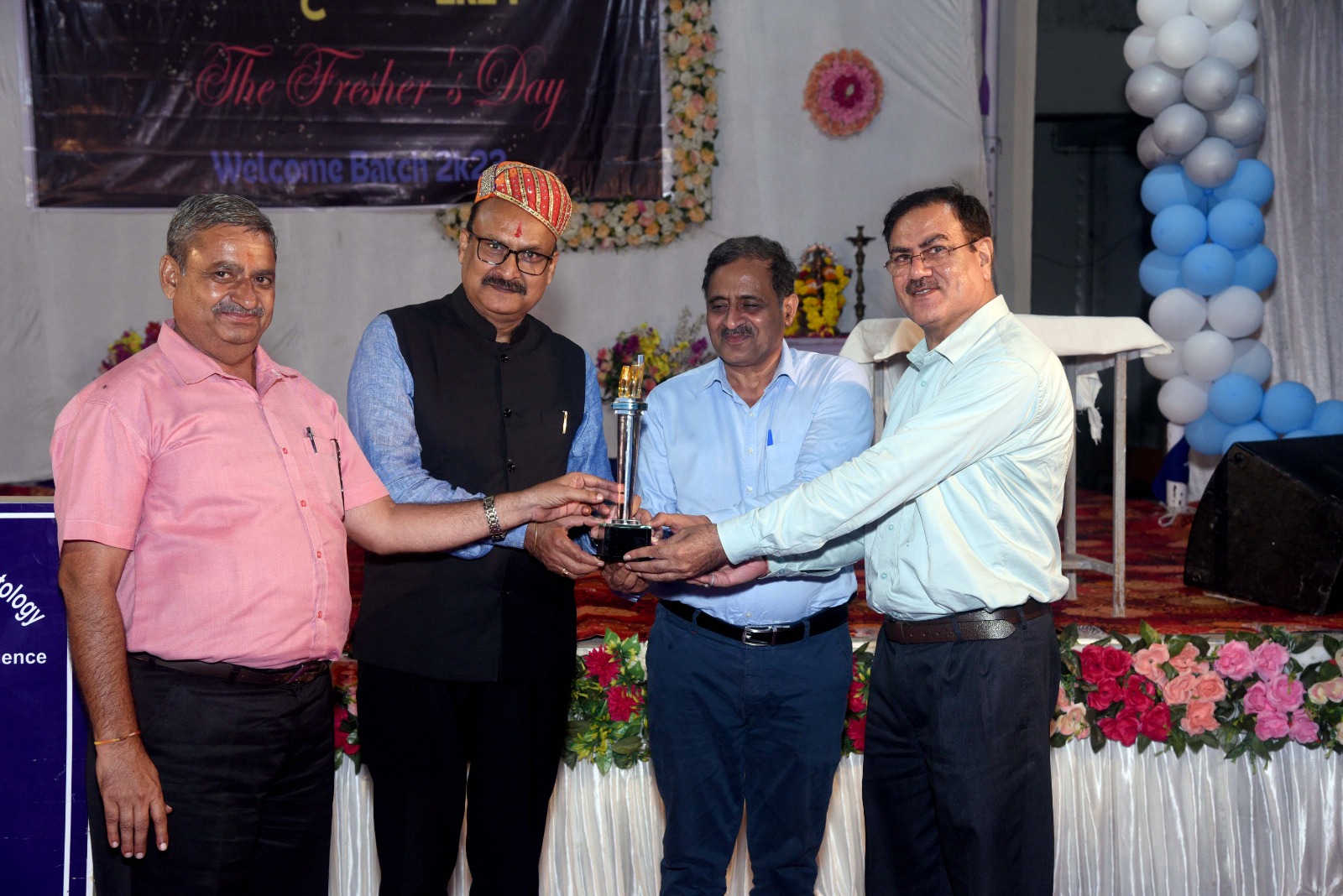
Udaipur – In celebration of the 50th anniversary of the establishment of Krishi Vigyan Kendras (KVKs), a torch relay (Golden Jubilee Torch) that started in Puducherry has reached KVK, Vallabhnagar. The grand event was graced by Dr. S.K. Garg, Vice-Chancellor of Rajasthan University of Veterinary and Animal Sciences, Bikaner (RAJUVAS), and Dr. R.K. Nagda, Dean of Vallabhnagar Center, who handed over the torch to Maharana Pratap University of Agriculture and Technology (MPUAT). On behalf of MPUAT, Dr. R.A. Kaushik, Director of Extension Education, and Dr. R.L. Soni, Senior Scientist and Head of Udaipur II, received the torch.
Dr. Ajit Kumar Karnataka, Vice-Chancellor of MPUAT, highlighted that the first KVK was established on March 21, 1974, in Puducherry, and over the past five decades, the number of KVKs has grown to 731 across India. This robust network is well-suited to address the challenges of agriculture.
He explained that the KVK scheme is fully funded by the Government of India and is granted to agricultural universities, ICAR institutions, relevant government departments, and NGOs working in agriculture. The goal of KVKs is to assess, refine, and demonstrate location-specific technological modules in agriculture and allied enterprises through technology evaluation and demonstration.
Essential Link in Research and Extension
Dr. Karnataka emphasized the need for farmers to access technology in crop production, livestock, forestry, and fisheries. The Indian Council of Agricultural Research (ICAR) addresses this need through KVKs established at the district level across India. KVKs serve as a crucial link between research and extension systems, conducting on-farm testing, frontline demonstrations, and training for farmers and extension personnel. KVKs have empowered millions of farmers with the latest advancements in crop production, livestock rearing, agroforestry, and allied fields, significantly contributing to agricultural and rural entrepreneurship.
Dr. R.A. Kaushik, Director of Extension Education, noted that the torch relay, after passing through KVKs in Jammu and Kashmir and Punjab, has reached Bikaner in Rajasthan. It will now visit all eight KVKs under MPUAT, including those in Banswara, Bhilwara, Udaipur I and II, Dungarpur, Rajsamand, Chittorgarh, and Pratapgarh, before being handed over to Kota Agricultural University. The torch relay, which began on March 21, 2024, in Puducherry, will conclude with a grand ceremony in Puducherry on March 21, 2025.
KVK's Visionary Founder: Dr. Mohan Singh Mehta
Dr. Karnataka proudly shared that Dr. Mohan Singh Mehta of Udaipur, an eminent educator, was the visionary behind the KVK concept. Long before the establishment of KVKs, Dr. Mehta had initiated similar activities at Vidya Bhavan in Badgaon. His committee's recommendations led to the establishment of the first KVK in Puducherry on March 21, 1974. Recognizing Vidya Bhavan's ongoing work in technology transfer in crop production, livestock, forestry, and fisheries, ICAR granted it KVK status, making it an exemplary model today.
KVKs have played a pivotal role in empowering farmers and meeting stakeholder needs. Over the past five years, many farmers associated with KVKs have been honored with prestigious awards, including the Padma Shri and Genome Savior Awards, for their exceptional contributions to agriculture. These recognitions underscore KVKs' significant role in inspiring agricultural talent and fostering innovation within farming communities.
KVKs have brought about substantial changes through various initiatives aimed at enhancing productivity, ensuring sustainability, and improving farmers' livelihoods. Each KVK typically covers 43 villages and serves around 4,300 farmers, with approximately 80% of these villages located more than 10 kilometers from the KVK campus. KVKs have modernized farming practices and provided information to students through Atal Tinkering Labs and the adoption of drone technology.